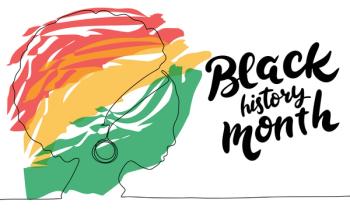
Don’t Shoot the Messenger
Presenting the winner of the 2023 Gerald F. Berlin Creative Writing Award.
The following is “Don’t Shoot the Messenger,” winner of the 2023 Gerald F. Berlin Creative Writing Award, introduced by a brief note from the author. The Gerald F. Berlin award recognizes exceptional prose and poetry written by medical, nursing, and doctoral students; residents; and fellows. To learn more about the award, see “
This piece was born out of my most difficult day as a medical student. I meant for it to capture the stunning and often agonizing way people’s lives collide with ours as health care workers, and the lasting impact of those experiences. But mostly, I wrote it to honor the memory of a man who remains a total stranger to me, and yet whose most intimate moments I had the great privilege to witness.
In submitting this piece, my hope was that it might give those who read it a chance to remember all the individuals whose stories are now a part of their own. I feel winning this award only serves to amplify the message I wanted to communicate to patients on behalf of all clinicians: You matter to us, in life, in death, and beyond. You stay with us, always.
Don’t Shoot the Messenger
It’s 1:48 on a Saturday afternoon, and I know that because I’m watching the clock. I’ve been scurrying behind a surgical resident who seems pathologically uninterested in me since 5:30 this morning, and I can tell that she’s running out of things for me to do.
Letmegoletmegoletmegoletmego I chant in my head, a silent prayer to whatever mercurial god watches over medical students. Seconds later, as if in response, the trauma pager I am carrying buzzes violently against my hip. Level 1 Trauma. 5 minutes out. Male. Unknown age. GSW. Unresponsive. Whoever I was praying to, they have other plans for me today.
I take the six flights of stairs down into the underbelly of the hospital, where the dark basement tunnels connect to the fluorescent emergency room. Outside the trauma bay I hurriedly don layers of protective equipment: yellow mesh gown, gloves, goggles, an extra mask. I decide to skip the shoe covers; the trauma bays are kept stiflingly hot and I can already feel sweat collecting under my scrubs. I slip through the swinging doors behind an ER nurse and take my place in the back right corner of the room. The rest of the team is already there, waiting. Everyone is in their designated positions: anesthesia at the head of the bed, nurses lined up against the wall holding syringes, stickers, cords. Swaying slowly at the front of the room, her eyes on the clock, is a newly-minted second year surgical resident. Elizabeth–Liz. She catches my gaze for a split second and gives me a wide-eyed stare. I look back at her confused. I don’t know what you’re saying, I respond silently, but before she has a chance to explain, two beer-bellied paramedics burst through the doors pushing a stretcher and the room erupts.
What follows happens in flashes. Behind me, EMS is shouting. Found down. Young Male. Two GSW to the chest. Two exit wounds. Unresponsive. Spontaneous cardiac activity. For the first few moments all I can see are nurses. They descend upon the stretcher, slicing through clothes, taking blood, tracking vitals. Then comes a high-pitched voice from over my shoulder. It’s Liz. In one minute we can give another dose of Epi. Across the room, someone echoes the order back. When I turn again to the stretcher I am suddenly confused. Blood is splattering, Andy-Warhol style, on the floor. He wasn’t bleeding earlier. What changed? My eyes dart back and forth over the patient, trying to locate a source. Finally, they focus and I see what I did not before. There is a resident with her arm inside his chest. She is scooping what appear to be fist-sized clots of blood into a bucket. Jesus Christ, I hear a man’s voice behind me whisper. I turn to face its owner, a 20-something police officer who must’ve slipped in unnoticed amidst the chaos, and who now looks a little pale. Please don’t faint, I hiss back. Everyone else is busy with this guy, so if you go down it’ll be me that has to deal with it, and I don’t have a license yet. We both chuckle softly, but I’m only half joking. I refocus on the stretcher, just in time for it to rush past me, through the doors, and down the hallway. A resident kneels on top, her hands wrapped around the patient’s heart, squeezing rhythmically. I tear off my gown and gloves and take off behind it, swerving around stunned hospital employees.
As I run, I notice a familiar flutter in my stomach. I’m excited. I sprint faster through the dimly lit halls and into the operating room. When I get there, the resident is still straddling the patient, her arms pumping furiously, eyes locked on the monitor while surgical techs frantically toss open case-carts. Moments later, a tall woman with light blonde hair peeking out underneath a scrub cap slips into the OR. She pauses briefly, scanning the room, then comes to stand at the head of the table. It’s time to stop now, she says, her voice low. The resident jerks her head up. His heart is still beating on its own sometimes. I can feel it, she pleads. The blonde woman’s gaze softens. I understand. But this man is not going to survive a surgery, and he won’t survive without one. Slowly, finger by finger, the resident releases her grip on the patient’s heart. She swings her legs, one after the other, off of the stretcher and walks out of the room. As if freed from a spell, the nurses and surgical techs disappear, leaving me, the blonde woman, and Liz—who must’ve been behind me this whole time. The blonde woman now turns to Liz and me. Maybe you and the medical student can close him back up. For the family. We nod stiffly and take our places on either side of the patient. Liz hands me forceps and a needle. I recall that moments ago I was excited, and my stomach turns. I put my hands on the patient’s chest, steadying myself. Through my gloves I can feel his still-warm skin. I shift in my shoes and realize suddenly that they are covered in his blood, which is pooling on the floor, and is also still warm. I bite the inside of my cheek—hard—until I’m sure that I won’t scream. Start lateral and work in, Liz says without looking up. I exhale a shaky breath and begin to suture. Slowly, skin, muscle and bone rejoin under arcs of bright indigo prolene. Over my shoulder I hear the police officer from before. He is talking to a short, official-looking man who is scribbling notes on a clipboard. Michael Mendoza. Gang-related. Wife is here. Said to look for a tattoo on his left arm. Romeo with a crown. For his son. Just born apparently. I stop my sewing to search, and gently turn over his arm, my fingers pausing over the swirling cursive script. It’s right here, I say softly, and the officer pulls his camera out to take a picture. He stops, then looks at me expectantly. Suddenly, I realize that I am still holding Michael’s arm. Without a word, Liz reaches across the table, and takes my hand. She holds it for a moment longer than she needs to before moving it out of the officer's way. For the second time today our eyes meet, she gives me another wide-eyed stare and this time, I know exactly what she’s saying.
Ms Danforth is a rising fourth-year medical student at the University of Massachusetts-Chan Medical School who is originally from Westwood, Massachusetts. She is passionate about providing care to members of historically underserved patient populations through the lens of social justice and community-based health education, and is looking forward to a career caring for women as an OB/GYN.
Danforth fell in love with medicine because of the way it unites science with story, and as a medical student and future physician, she aims to continue documenting the unique and precious lives of her patients through writing.
Newsletter
Receive trusted psychiatric news, expert analysis, and clinical insights — subscribe today to support your practice and your patients.







